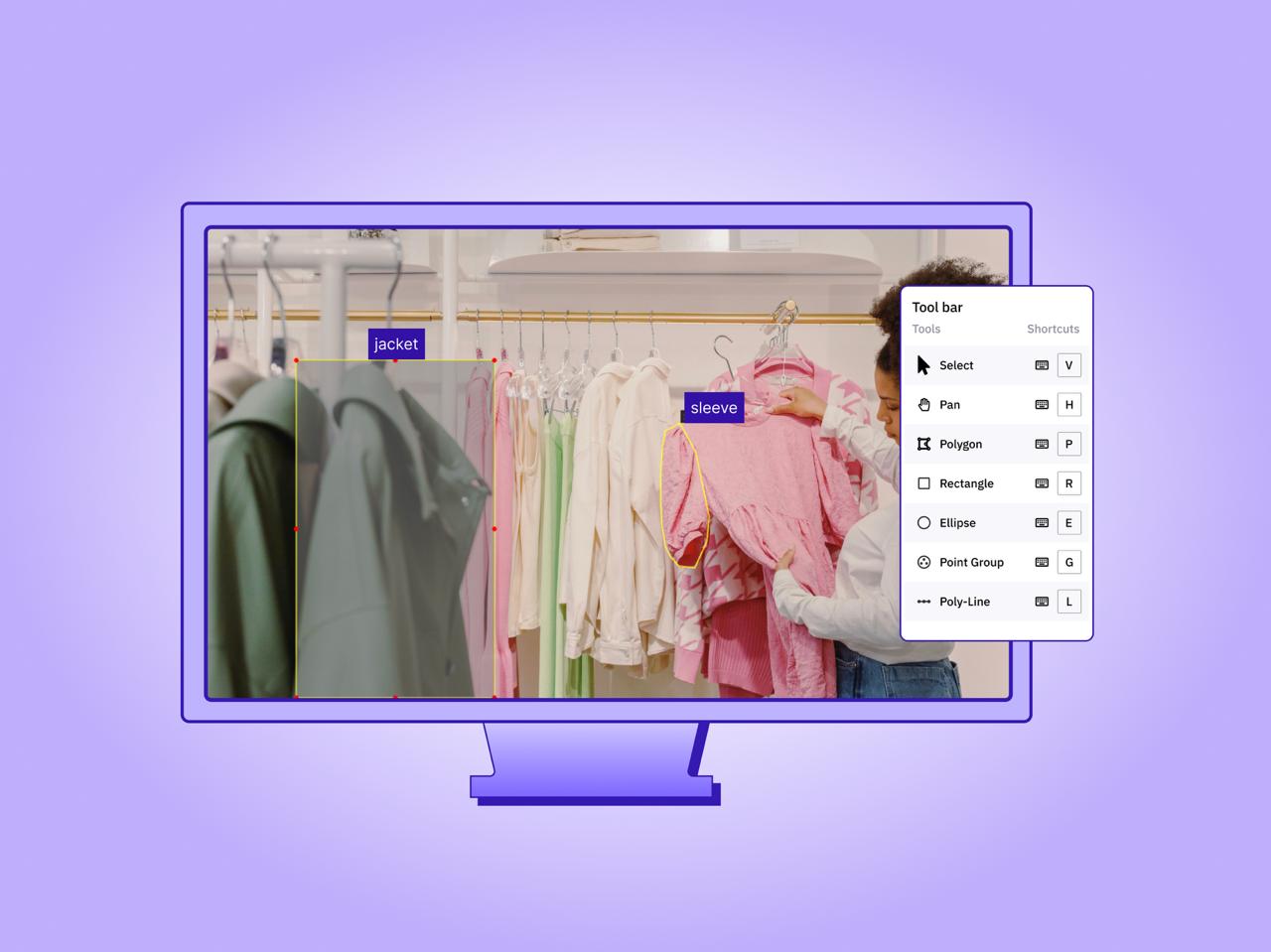Data annotation plays a crucial role in eCommerce and retail by improving the accuracy and effectiveness of various algorithms and as well as machine learning data for E-commerce models that power these industries. By leveraging data, enterprises can make better decisions that result in higher profits, increased customer satisfaction, and improved operational efficiency.
While in eCommerce, data annotation can be used to improve product search and recommendation algorithms, in retail, it can be used to optimize inventory management and supply chain operations. Annotated data can be used to help retailers better understand customer preferences, buying behavior, and even predict future demand for products.
By analyzing the data, retailers can determine which products are most popular, which items are being bought together, which items are being returned, and which items are being replaced. This information can be used to improve inventory management, stock levels, pricing strategies, and create more targeted marketing campaigns and personalize customer experiences.
How A Data Labeling Platform Streamlines Your Retail Annotation Process?
Data labeling platforms are designed to streamline the retail industry annotation process by providing an efficient and intuitive way of organizing, labeling, and annotating data for computer vision and machine learning applications.
By leveraging automated and manual labeling processes, data labeling platforms enable retailers to quickly and accurately label data for their AI projects.
Here’s how a platform like Taskmonk nails it:
Competitive Intelligence
Competitive intelligence can be a valuable tool in streamlining the retail data labeling process by providing insights into how other retailers are utilizing and annotating similar data. By gathering and analyzing data on competitors' labeling practices, retailers can gain a better understanding of what labeling strategies are most effective and efficient for their industry.
Product Classification
Data labeling can be greatly accelerated through automated product classification. By automating the product classification process, retailers can reduce the time and resources dedicated to manually annotating product data and increase the accuracy of the data collected - thus, ensuring a more efficient data labeling process with fewer resources required.
Product Attribute Curation
Data labeling is a critical component of product attribute curation, as it ensures that product data is accurate and up-to-date. Automated data labeling solutions can greatly speed up the process, particularly when dealing with large volumes of data. By utilizing predefined rules and algorithms, these solutions can quickly and accurately label product attributes - eliminating the need for manual intervention.
Search Relevance
By improving search relevance, data labeling for retail teams can ensure that their labels are accurate and relevant to the search terms used. This, in turn, can lead to better customer satisfaction and increased sales, as customers are able to quickly and easily find the products they are looking for.
Enterprises are Data-Rich but Label-Poor - Why?
Enterprises often lack the resources, time, and infrastructure to properly label their data. Even if they are able to collect large amounts of data, they may not have the expertise or resources to accurately label and categorize the data to make it usable. Data labeling is often a tedious and time-consuming process, and many enterprises do not have the staff or the right resources to dedicate.
That’s the reason, labeled-data procurement in enterprises is fractured and unoptimized - resulting in bloated labeling budgets, labeling tool sprawl, and increase in time-to-market of Al-driven products.
How does Taskmonk solve this?
Taskmonk acts as a command center for your labeled-data pipelines and offers simple tools to orchestrate powerful labeling applications and collaborate with global teams.
With Taskmonk, you can
- Orchestrate Labeling Projects, without Code in a No-Code Framework
- Integrate with any Data Source with the help of Pre-Built Connectors and APls
- Optimize Labeling Costs
- Boost Data Accuracy
- Manage Multiple Labeling Partners
- Work with Simplified Workflow Engine
Role of Taskmonk in Upleveling Your eCommerce & Retail Process
For an enterprise eCommerce company, Al is no longer just a competitive advantage, it's a critical necessity. Without an advanced Al system in place, it can be incredibly difficult to provide the highest quality customer experience and stay ahead of the competition. However, creating an effective Al system requires extensive data-labeling and dozens of algorithms that need to be trained - this can be a laborious and expensive task.
Taskmonk helps to make this process easier and more cost-effective. Our platform empowers companies to optimize the data labeling process, train algorithms faster and more efficiently, and significantly reduce costs associated with Al development. By utilizing Taskmonk, enterprise eCommerce companies can create better Al systems and stay ahead of the competition.


%20(1).png)

.png)